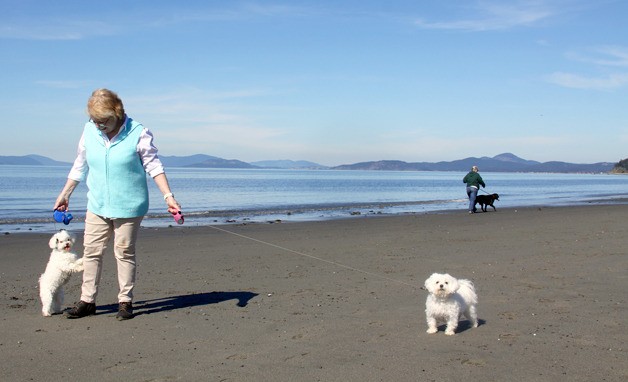Supporters of Joseph Whidbey State Park upset with the idea of private development in their park can breathe a sigh of relief.
Joseph Whidbey is no longer under consideration for recreational business activities.
At least, for now.
The scenic waterfront park in Oak Harbor didn’t make the final cut of state parks targeted for RBAs, a controversial idea Washington State Parks is exploring that allows for the potential for private investors to help develop visitor amenities in an effort to provide an income stream for state parks.
It was quietly announced in January that Joseph Whidbey was one of 11 candidates being considered for the concept.
That created an uproar among park users and led to a gathering of 80 people at the Coupeville Recreation Hall in March who grumbled about the idea at a public meeting hosted by state parks.
That displeasure, among other reasons, resonated with state parks staff, which ultimately pared the candidate pool to two final park sites in the Puget Sound region.
Only Fort Flagler State Park on Marrowstone Island and Millersylvania State Park, south of Olympia, were selected as pilot candidates to pursue the idea.
State Parks staff used public feedback to help make that decision prior to the State Parks Commission meeting in Moses Lake Thursday. The staff also recommended no action be taken until the concept was explored more deeply.
“We decided we really needed time. Let’s pause,” state parks spokesperson Virginia Painter said. “Let’s really go through this and make sure we’ve got definitions that make sense.”
“From our point of view, this isn’t really different than what we already do with concessions.
“We were just over at Sun Lakes State Park, which has the second biggest concession (area in the parks system). Well, that’s an RBA.”
According to a proposal, 60 of Joseph Whidbey State Park’s 206 total acres could have been used for privately financed recreational developments that might’ve included up to 50 cabins, a lodge-type structure with food services and new day-use facilities.
The public sentiment was strongly opposed to such ideas, Painter said, citing that public concern and issues with public utilities derailed Joseph Whidbey’s chances of being considered as a pilot candidate.
She said the sites that didn’t make the cut would for now be “put to the side” while the focus goes to furthering the concept at Fort Flagler and Millersylvania state parks.
There is an interest in updating and possibly adding buildings at Fort Flagler to accommodate overnight guests and possibly create a store, Painter said.
Most of the state parks under consideration for RBAs had some levels of support, but not Joseph Whidbey, Painter said.
“We got a sense that the tone of this one was different,” she said.


